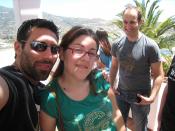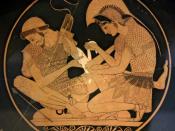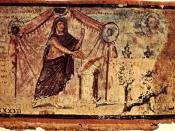Looking at the nature of myths is to say that myths are tales shared by a group, and which are a part of their cultural distinctiveness. They are significant and vital to understand when looking at the history of a people.
The accounts of the Greek and Roman Gods and heroes are at random referred to as myths and legends. On the other hand we can distinguish amid the two types of story and between them and folktales and fairy tales even though a story may shift between these dissimilar groups or may hold elements from each of them.
We can say that a myth gives a religious explanation for something that is how the world or a particular custom started. There is more often than not no attempt to fix the myth into a logical chronology connected to the present day, despite the fact that myths or a cycle of myths may have their own internal chronology.
The story is eternal in that the events are emblematic rather than just the way it occurred.
The Roman history is all but fabulous to as it had it share of statesman, emperors, warriors and the Caesars. The power of an Empire that dominated most of what we know of as Europe, ruled it, connected its roads and laws with it, exported its culture and language to it. Baths, plumbing, food, religion, architecture, drama, walls, palaces, slaves and servants. Political strategy, diplomacy, and philosophy. Words falter in capturing this mighty civilization with its weaknesses and strengths, its conquest and its catastrophe.
The Roman empire then filled the world, -- "the sublimest incarnation of power, and a monument the mightiest of greatness built by human hands, which has upon this planet been suffered to appear." That empire, proud of its conquests, and exceedingly...


